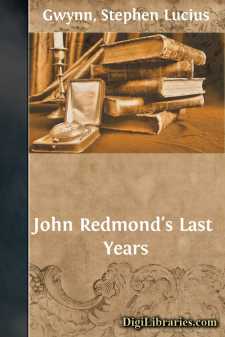Categories
- Antiques & Collectibles 13
- Architecture 36
- Art 48
- Bibles 22
- Biography & Autobiography 813
- Body, Mind & Spirit 138
- Business & Economics 28
- Children's Books 12
- Children's Fiction 9
- Computers 4
- Cooking 94
- Crafts & Hobbies 4
- Drama 346
- Education 46
- Family & Relationships 57
- Fiction 11821
- Games 19
- Gardening 17
- Health & Fitness 34
- History 1377
- House & Home 1
- Humor 147
- Juvenile Fiction 1873
- Juvenile Nonfiction 202
- Language Arts & Disciplines 88
- Law 16
- Literary Collections 686
- Literary Criticism 179
- Mathematics 13
- Medical 41
- Music 40
- Nature 179
- Non-Classifiable 1768
- Performing Arts 7
- Periodicals 1453
- Philosophy 64
- Photography 2
- Poetry 896
- Political Science 203
- Psychology 42
- Reference 154
- Religion 505
- Science 126
- Self-Help 81
- Social Science 81
- Sports & Recreation 34
- Study Aids 3
- Technology & Engineering 59
- Transportation 23
- Travel 463
- True Crime 29
The Life of the Rt. Hon. Sir Charles W. Dilke, Volume 2
Description:
Excerpt
I.
The interval between the Sessions of 1883 and 1884 was critical for the question of electoral reform which interested Liberals beyond all other questions, but involved the risk of bringing dissensions in the Cabinet to the point of open rupture. As the months went by, Mr. Chamberlain and Lord Hartington used less and less concealment of their differences, while it was well known to all the Cabinet that the alliance between Chamberlain and Dilke was complete and unconditional. Whoever broke with Chamberlain broke with Dilke. Fortunately a certain bond of personal sympathy, in spite of divergent views, existed between Lord Hartington and Sir Charles Dilke, and this bond largely helped to hold Mr. Gladstone's Government together.
In the negotiations which followed between the leaders of the two great
Parties, Sir Charles Dilke was able to show the full measure of his
value to the State. It was of first-rate importance that the Liberal
Party should possess at that moment a representative with whom Lord
Salisbury found it congenial to treat, and whom the most advanced
Liberals trusted unreservedly to treat with Lord Salisbury.
The same confidence could hardly have been given by them to Lord Hartington, who held that "equalization of the franchise was pressing mainly on account of the pledges that had been given, and not much for any other reason." [Footnote: Letter to Mr. Gladstone of October 24th, 1883, quoted by Mr. Bernard Holland in his Life of the Duke of Devonshire, vol. i., p. 395.] Most Liberals took a very different view of the need for this reform. Further, Lord Hartington held that franchise and redistribution should be treated simultaneously, and he was unwilling to extend the franchise in Ireland.
At a Cabinet on October 25th, 1883, the question of simultaneous or separate treatment of the problems had been settled. Mr. Gladstone, says Sir Charles, 'made a speech which meant franchise first and the rest nowhere.' On the Irish question, Sir Charles was instructed to get accurate statistics as to the effects of equalizing the franchise between boroughs and counties, and 'on Friday, November 16th,' he notes, 'I wrote to Chamberlain: "I have some awful figures for poor Hartington to swallow—700,000 county householders in the Irish counties."' Lord Hartington still stuck to his point of linking redistribution and franchise.
But on November 22nd,
'Mr. Gladstone read a long and admirable memorandum in favour of the views held by him, by Chamberlain, and by me, as to franchise and redistribution—that is, franchise first, with a promise of redistribution but no Bill; and Hartington received no support after this from any members of the Cabinet.'
There were, however, matters in which Lord Hartington's Conservative tendencies found an ally in the Prime Minister. On November 28th, 1883, at the Committee of the Cabinet on Local Government,
'Chamberlain noted: "Mr. Gladstone hesitates to disfranchise the freeholders in boroughs—persons voting as householders in boroughs and as freeholders in the counties in which the boroughs are constituted....





